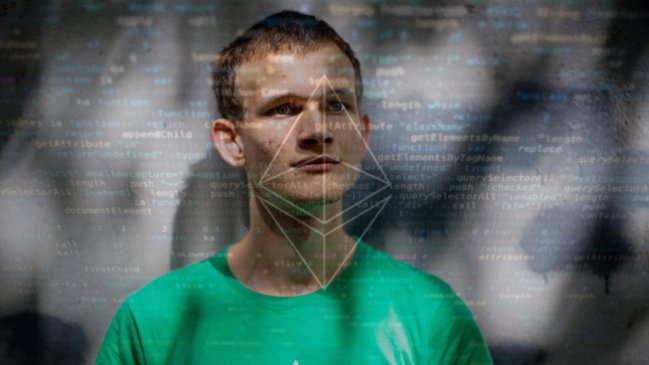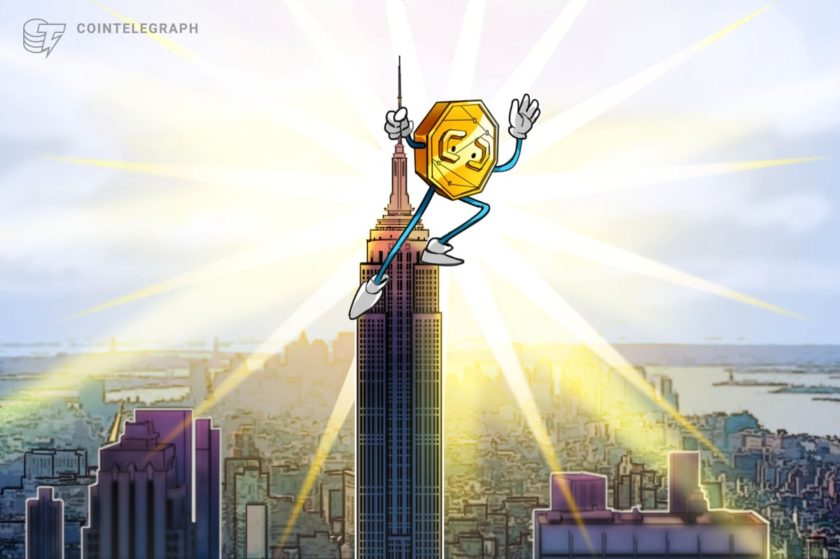As questions circle about the network’s capacities following surging transaction costs and accelerating activity in the decentralized finance (defi) arena, Ethereum’s founder Vitalik Buterin opines that layer-2 solutions could help the network scale by a factor of 100x in mere months to meet growing demand.
Sidechain Bundling Touted as Workaround to Current Network Congestion
Ethereum has passed many milestones over the last 12-months and can be credited as the protocol responsible for popularizing the defi revolution thanks to its smart contract capabilities. Yet, as demand for the network’s service concurrently spiked, it created new headaches for users as surging gas costs made it much more expensive to transact.
These developments have coincided with the ongoing ETH2 rollout, which effectively upgrades the original infrastructure to support better performance through improved scalability, increased efficiency, and higher transaction throughput. However, recent activity has clogged network performance, sparking debates about the best methods to fix these problems.
In a recent interview on the Tim Ferriss Show with Naval Ravikant, Vitalik Buterin, Ethereum’s 27-year old cofounder, discussed how one answer to this congestion lies in layer-two scaling solutions that could be implemented in a matter of months. According to Buterin, rollups such as ZKS might play a key role in reducing network costs and amplifying performance.
Rollups Complement Plans For Sharding as Part of ETH2 Upgrades
Unlike a traditional Ethereum transaction, which would require the network to confirm the transaction, layer-two rollups effectively allow a sidechain to record and validate all transactions before “rolling them up” into a single transaction. That single transaction then needs to be approved by the mainchain, in this case, Ethereum.
In stark contrast to existing confirmation times, rollups can provide instant confirmation, circumventing the congestion that has plagued the Ethereum network for months. Buterin believes that this layer-two scaling solution can deliver 100-fold scalability within months. When combined with layer-one scaling solutions like sharding, which are also set to come to the network, that figure rises to 1000x.
Moreover, sidechains can address the high transaction fees that have angered users, adding affordability that is already being leveraged by new defi applications eager to expand their footprint.
Decentralized Exchanges Transition to Layer-Two
Decentralized exchanges (dex) and defi protocols like Uniswap have been the unfortunate casualties of Ethereum’s congestion due to their layer-one construction. To address this shortcoming, ZKSwap’s ZK-Rollups, an automated market maker (AMM) layer-two-based token swap protocol, has developed a sidechain rollup to overcome the issue.
This rollup can support defi, but without the high gas fees that have hounded defi participants. Buterin believes that this rollup may be the answer needed to achieve the 100x scalability he mentioned, and the solution has already delivered demonstrable results.
According to a Tweet from March 10t that focused on the layer-two dex competition, ZKSwap currently holds the top spot among similar solutions, recording over $66,000,000 in 24-hour trading volume.
L2 DEX trading volume in the last 24hrs:
1 @ZKSwapOfficial $70,717,033 (7% $ZKS)
2 @QuickswapDEX $32,014,977 (25% $QUICK)
3 @loopringorg $8,447,643 (63% $LRC)
4 @nashsocial $1,608,638
5 @deversifi $763,514
6 @Leverj_io $234,417
Powered by @coingecko API— L2_Dex_Wars (@L2Wars) March 10, 2021
Total value locked (TVL) in the dex (decentralized exchange) numbers is presently over $813 million at the time of writing.
Do you think the Ethereum network will ride the current bull run to grow X100 as Vitalik predicts? let us know in the comments section below.
Image Credits: Shutterstock, Pixabay, Wiki Commons, Fortune.com




